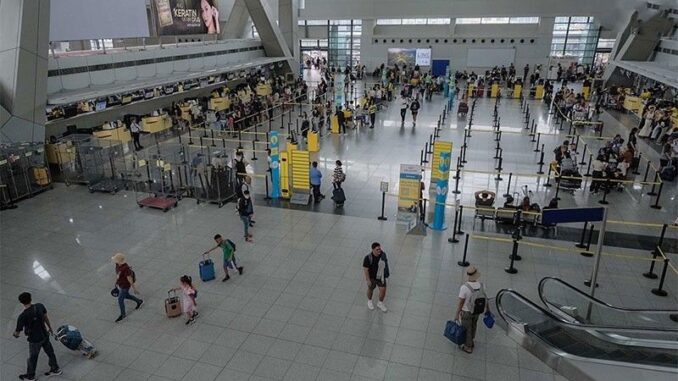
The Philippines’ main gateway, the Ninoy Aquino International Airport (NAIA) is now under the management and operation of the San Miguel-led New NAIA Infra Corp. (NNIC). Over the weekend, the Department of Transportation (DOTr) handed over the airport to its new private operator during a ceremony at NAIA’s Terminal 3.
This development marks the beginning of a major modernization program- one that is set to boost economic growth and reflect the kind of Filipino hospitality that we want to showcase on the global stage.
The NNIC- a consortium led by San Miguel Holdings and includes RMM Asian Logistics, RLW Aviation Development and Incheon International Airport Corp. won against two other bidders after it offered the highest share of revenues to government at 82.16 percent.
Just after the official turnover, NNIC made a P30-billion upfront payment, a move lauded by the Department of Finance (DOF) as it set a precedent for the government to earn more from a deal. According to Finance Secretary Ralph Recto, the money will boost the government’s non-tax revenue stream and will enable more funding for projects in education, public health, and infrastructure.
The upgraded airport is expected to generate around PHP900 billion in revenues for the government during the 15-year concession period and create some 58,000 jobs for Filipinos. The concession agreement can be extended for another 10 years.
According to the Department of Transportation (DOTr), the modernization is expected to nearly double the airport’s passenger capacity to 62 million from 35 million, increase air traffic movement to 48 movements per hour from 40, and improve service quality and compliance with International Civil Aviation Organization standards.
Other improvements listed by the DOTr are installation of world-class systems and technology, additional vehicle parking spaces, more food and beverage store options for travelers, aircraft parking bays, and better transport connectivity. Improvements can reportedly be seen as early as Christmas season this year.
Upfront, these developments are largely seen to enhance the overall passenger experience of Filipinos and foreign visitors.
But the benefits of the modernization of NAIA goes beyond improved passenger experience. These developments are crucial to grow our country’s tourism sector and support economic development.
By upgrading NAIA, the Philippines is positioning itself to be a competitive player in the travel market – regionally and globally – with a gateway that meets, if not exceeds, international standards. This can translate to significant foreign investment particularly in the tourism and hospitality industry. It will also enhance the Philippines reputation and image on a global scale. As the first point of contact for international travelers, a world-class NAIA will create a positive and lasting impression of the Philippines.
Optimism and expectations are naturally high given the years of clamor for airport upgrades.
I, for a fact, am among those who are both hopeful and excited for the improved NAIA touted by the NNIC. I see this opportunity as another testament of the effectivity of public-private partnerships in bringing to life important projects for the collective benefit of the people. The DOF said that this NAIA rehabilitation project is estimated to cost of P170.6 billion and is the largest Public-Private Partnership project under President Ferdinand Marcos, Jr.
Generally, the private sector can offer so much in terms of support for public programs particularly infrastructure projects. These include but are not limited to resources, expertise, and experience. As we have seen in the past, public-private partnerships are highly effective in bringing to life large-scale infrastructure development and programs that benefit many stakeholders.
While we have yet to see how the NNIC will perform as the operator of NAIA, the private consortium deserves to be widely supported. Their expertise and financial investment are critical to the success of the modernization of NAIA to become a world-class terminal – one that will reflect on the country as a whole.
Beyond the infrastructure improvement, the modernization of NAIA is a milestone for the Philippines in terms of global connectivity. It is the realization of years’ worth of clamor and planning for a better airport and passenger experience.
With high hopes on this massive venture, there is opportunity for the NNIC to transform NAIA from one of the worst airports into a world-class gateway that will bring the Filipino people pride.


Be the first to comment